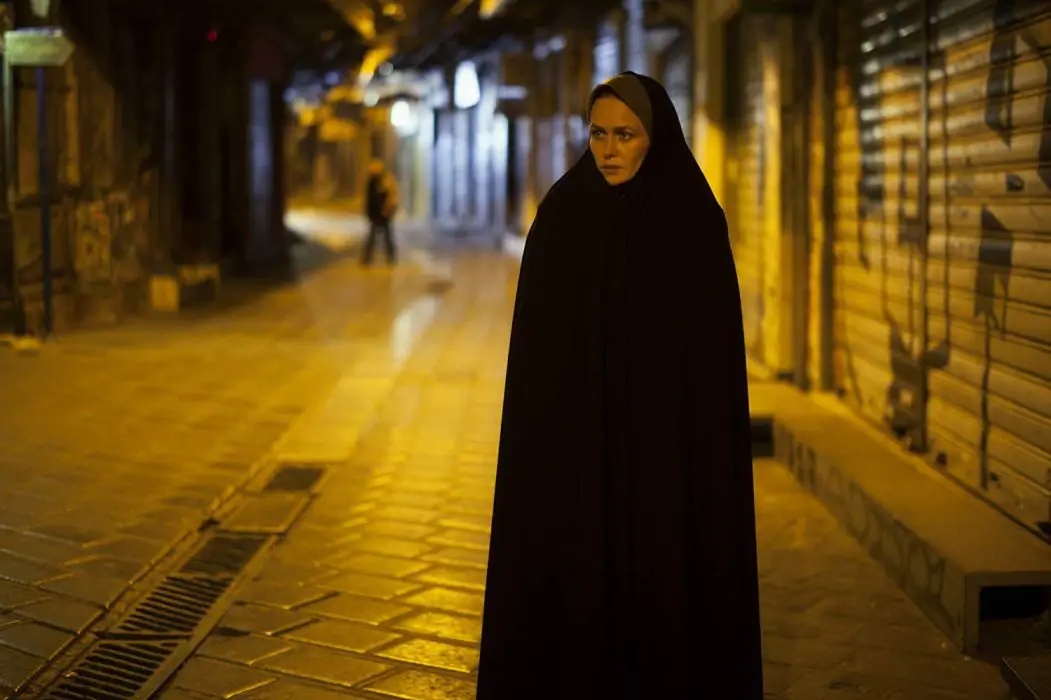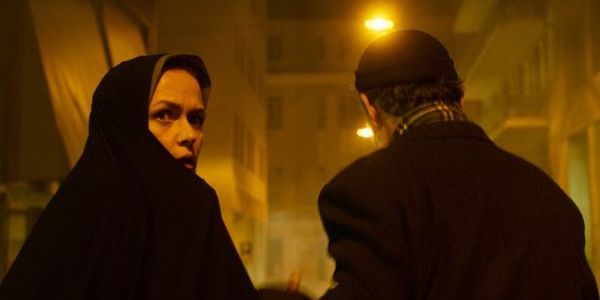Berlinale 2020: Interview With PARI Director Siamak Etemadi

Wilson is a cinema enthusiast based out of Toronto, Canada.…
Siamak Etemadi‘s feature film debut, Pari, is sure to surprise most viewers. While it purports to be a domestic drama, the film seamlessly transitions between a number of different genres in a fascinating way. Following the world premiere of Pari at this year’s Berlin International Film Festival, I sat down with Etemadi to talk about film.
Wilson Kwong for Film Inquiry: During the Q+A of the film’s world premiere screening, you mentioned that ‘Pari’ is also the name of your own mother. Can you talk about how she inspired the inception of the film?
Siamak Etemadi: For sure. I was born and raised in Tehran, but have lived in Greece for the last 25 years. And my mom, Pari, comes visit me every couple of years. She speaks very few words of English, so I have to go to the airport and pick her up each time. One day when I was waiting for her, I just imagined what she would do if I wasn’t there; like if I had an accident and I couldn’t tell her where I was. And when I told her about this, she said something about how she would ‘sew the sky and the ground together’. It’s an Iranian phrase, meaning she’d lift mountains to find me. And that was interesting to me and made me wonder what this deep longing inside us was when we crave for something very important. Whether it’s a child or loved one, it sets us in motion and seems to makes us overcome all our limits and fears to go much further. And that was the starting point or engine of the story.

Can you talk a little bit about casting Melika Foroutan in the leading role? She gives such a fantastic performance in the film.
Siamak Etemadi: I always knew that the casting would be very demanding because it’s one of those stories where the main character is in every single scene. She’s everywhere, and the whole story is based on this character’s transformation, which was very demanding both psychologically and physically. So we did a long period of casting and searched in the US, Canada and Europe. It was a true gift for the film when we finally found Melika.
One very interesting thing about Pari is the way it seems to shift from one genre to the other. At times, it felt like a domestic drama, political thriller and murder mystery, among other things. Did you always plan for the film to embody so many different genre elements?
Siamak Etemadi: When I was searching for the story during the writing process, I wasn’t thinking about the genres. Because the story felt quite personal to me, I was really searching myself to understand what it might be about. Then later on when we were planning to shoot the film, the questions about the film’s atmosphere and everything else came into the forefront. I remember some of my collaborators saying, “Okay, so we are making it an existential thriller.” The film tackles really deep personal issues, but we wanted the script to be gripping. The very fact that you’re a foreigner in a strange land should bring some tension and suspense to the story, which I imagine informs the genre of the film and changes the tone.
The tone of the film certainly changes, and seems to evolve along with Pari’s character. She’s someone who changes quite significantly by the end of the film.
Siamak Etemadi: I knew that there was going to be a huge transformation, but wasn’t sure how the ending was going to be. It took us quite a few years to write the script, and I think it was almost after three years that we finally started the financing process. The script changed during that period too, especially the ending. The more time you spend trying to write the characters and understand them, the more the characters surprise you, and the ending was so crucial to the transformation of the character. And I knew there would be a big transformation, I just wasn’t sure what it was.

Visually speaking, the film takes place mostly at night and is also shot on location. Did you always intend for the film’s locations to be like this?
Siamak Etemadi: Yes, Athens is where I live and most of these places are places that I always felt had a lot of cinematic potential. These were lively places with a fertile ground for facilitating filmmaking both visually and metaphorically. So we tried to use these real locations.
And do you expect Western audiences to appreciate the film differently compared with a European audience?
Siamak Etemadi: I would say that I always felt there were universal elements in the story. I would even say that the character could be from Columbia searching for her missing son in Kazakhstan. The challenges would have been the same. Of course, I talked about an Iranian woman searching in Greece, which used two cultures that I knew personally. The reaction is actually a big question mark for me. The first reactions that I’m getting right now out of Berlin has been great, especially from talking to audience members who came out to see the film. I remember an older Italian woman who was dressed really elegantly telling me she really liked the film. Then right after, there was this lady in her 20s who said, “This movie’s so punk. It’s great!” And it felt really nice because there was such a sharp contrast between these two ladies, and they both liked the film.
Did you feel any pressure having to present Pari, which is your first feature film, at such a prestigious festival?
Siamak Etemadi: No, it’s not so much pressure to be honest with you. It’s really interesting, because when you watch your film with the audience in a real cinema, the experience is totally different. You really see everything quite differently, and I appreciate it. I think it has been a tremendous learning experience for me as a first time filmmaker.
Does content like this matter to you?
Become a Member and support film journalism. Unlock access to all of Film Inquiry`s great articles. Join a community of like-minded readers who are passionate about cinema - get access to our private members Network, give back to independent filmmakers, and more.
Wilson is a cinema enthusiast based out of Toronto, Canada. He escapes from his day job by writing random thoughts about cinema on the internet. Although he has a longstanding penchant for Hong Kong cinema, he considers himself to be an advocate for Asian cinema in general. He has been attending the Toronto International Film Festival every year since 2005, and more of his work can be found on his website: www.wilson-kwong.com.













